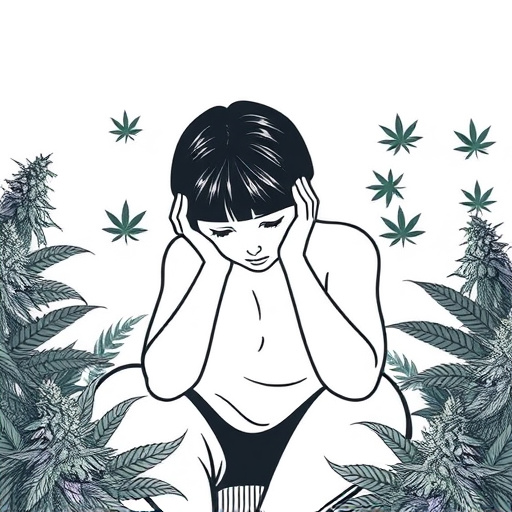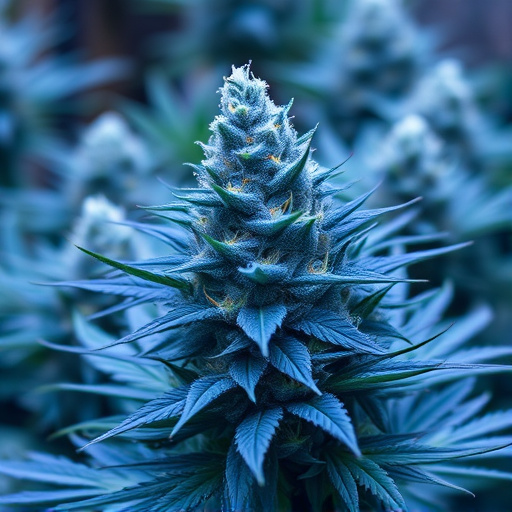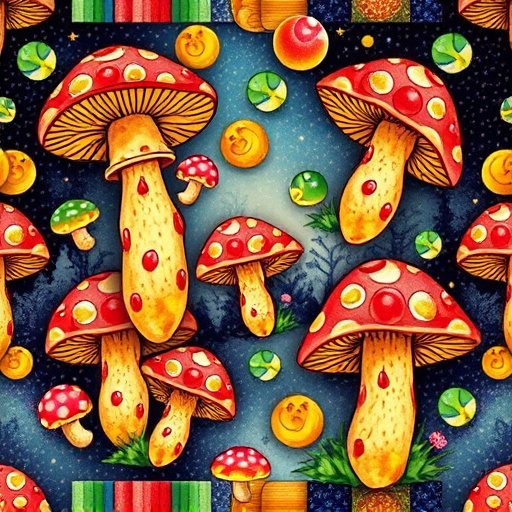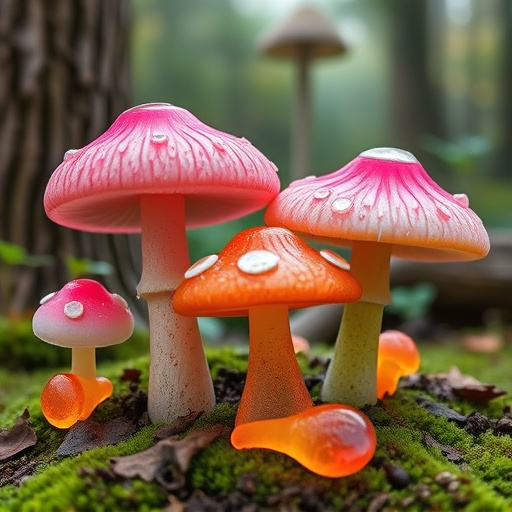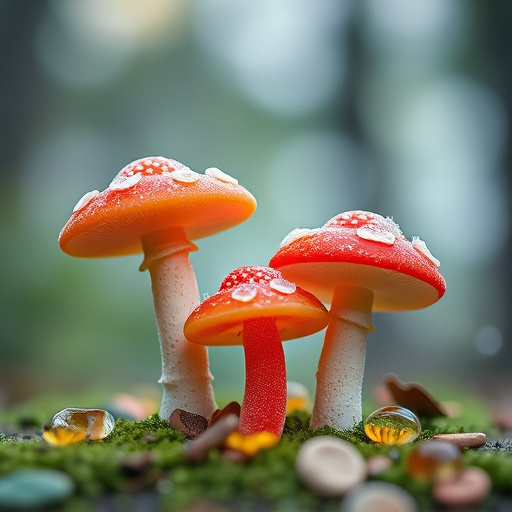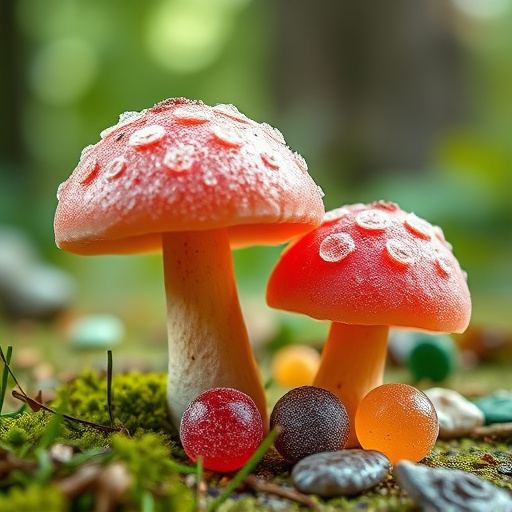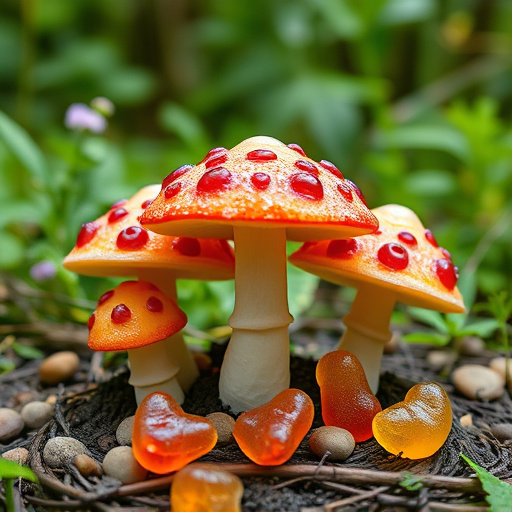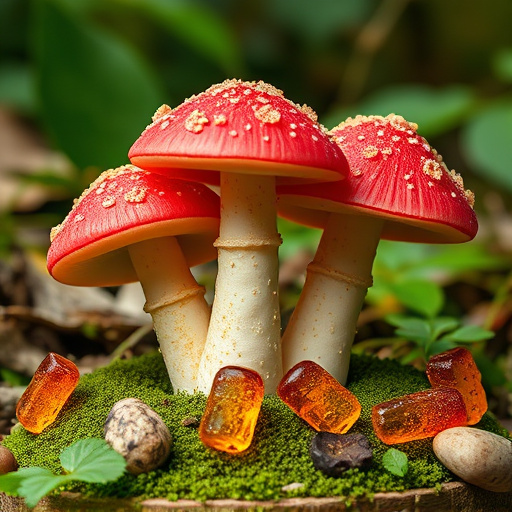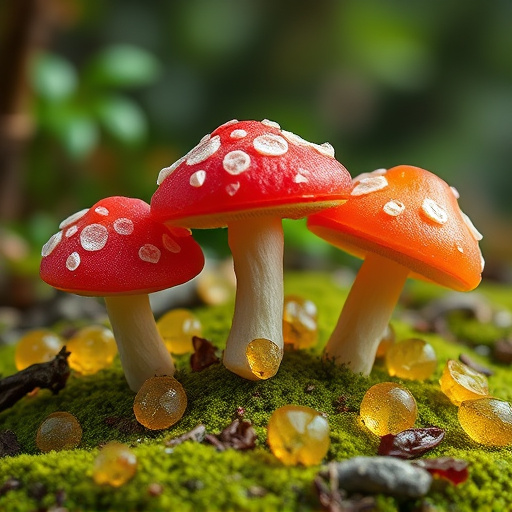Magic mushroom gummies, incorporating compounds like psilocybin from magic mushrooms into edible forms, are revolutionizing cognitive support and gaining traction in trauma recovery. Clinical studies show these substances can promote neural plasticity and enhance emotional processing, helping individuals safely confront and integrate traumatic memories. While initial research is promising, caution is required due to a lack of rigorous scientific evidence; responsible development and regulation are crucial for realizing benefits while protecting public health.
“Unleashing the potential of Magic Mushroom Gummies as a revolutionary tool for focus and trauma recovery has gained traction in recent years. This article explores the unique approach of using psychodelic-infused gummies to enhance cognitive function and address traumatic stress. We delve into the science behind these compounds, their promising effects on mental health, and how they can provide an alternative treatment method. By examining case studies and expert insights, we uncover the safety considerations and future prospects of integrating magic mushroom gummies into trauma recovery plans.”
- Understanding Magic Mushroom Gummies: A Focus-Enhancing Approach
- The Role of Psychodelics in Trauma Recovery
- Safety Considerations and Future Prospects for Traumatic Stress Management
Understanding Magic Mushroom Gummies: A Focus-Enhancing Approach
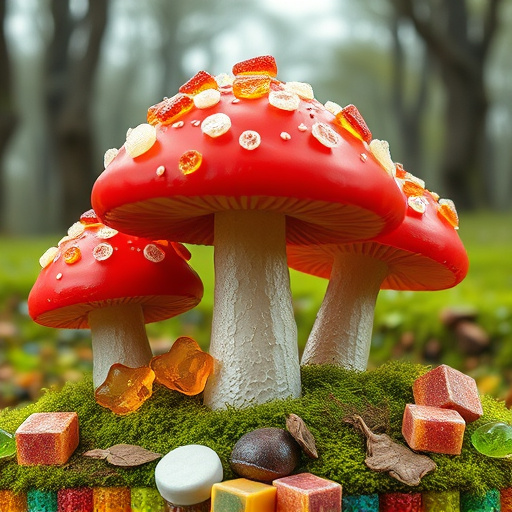
Magic Mushroom Gummies are gaining attention as an innovative approach to enhancing focus and mental clarity, offering a unique twist on traditional methods. These gummies incorporate compounds found in magic mushrooms, such as psilocybin or psilocin, which have been studied for their potential therapeutic effects on various mental health conditions, including trauma recovery.
By converting the active ingredients into edible forms like gummies, individuals can experience the benefits of magic mushrooms in a more accessible and palatable way. This method allows for micro-dosing, where precise amounts are consumed to achieve specific effects, potentially improving focus without the intense alter ego states often associated with higher doses. This focus-enhancing approach has sparked interest among those seeking natural solutions for cognitive support.
The Role of Psychodelics in Trauma Recovery
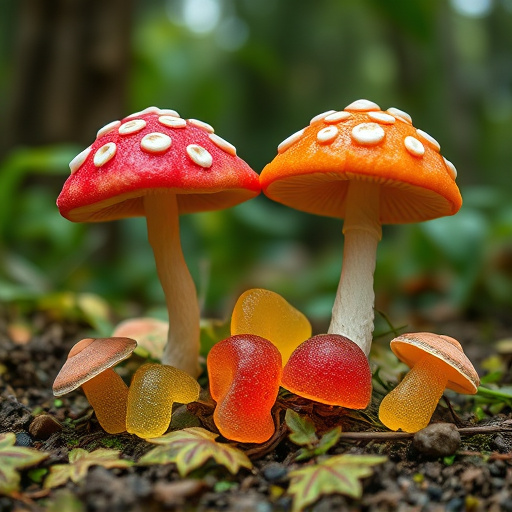
Psychdelic-assisted therapy, including the use of magic mushroom gummies as a tool, has shown significant potential in aiding trauma recovery. Studies suggest that certain psychodelics can facilitate healing by promoting neural plasticity and enhancing emotional processing. During traumatic events, our brains often become stuck in a loop of reliving the experience, leading to flashbacks and heightened anxiety. Magic mushrooms, or psilocybin, have been found to disrupt these negative thought patterns and promote a sense of detachment from distressing memories. This can be incredibly beneficial for individuals struggling with post-traumatic stress disorder (PTSD).
In controlled clinical settings, microdosing magic mushroom gummies has demonstrated the ability to reduce symptoms of anxiety and depression while increasing openness to new experiences and positive emotions. The experience induced by psilocybin allows individuals to revisit traumatic memories in a safe, guided environment, fostering a sense of resolution and integration. This process can help break the cycle of avoidance often associated with trauma recovery and promote a deeper understanding and acceptance of past events.
Safety Considerations and Future Prospects for Traumatic Stress Management
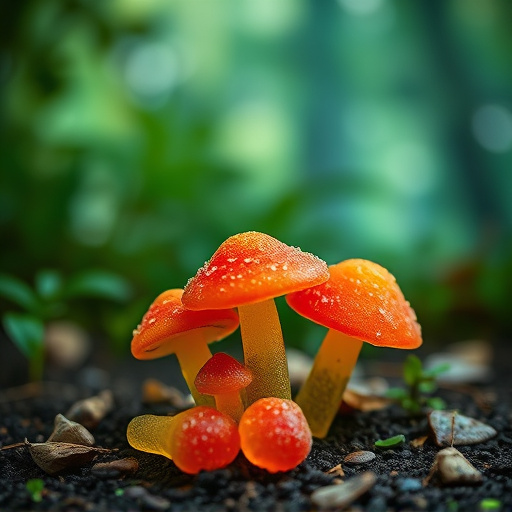
While initial research suggests that magic mushroom gummies may hold promise for traumatic stress management, it’s crucial to approach this topic with caution. Safety remains a paramount concern; clinical trials are still needed to ensure their efficacy and mitigate potential risks. The current landscape of magical mushroom-based therapies is largely anecdotal, emphasizing the need for rigorous scientific study to substantiate claims of trauma recovery.
Looking ahead, the future prospects for magic mushroom gummies in traumatic stress management are intriguing. As research expands, we may uncover novel mechanisms through which these compounds exert their effects. This could lead to more targeted and effective treatments for PTSD and related conditions. However, responsible development and regulation are essential to ensure that any potential benefits are realized while safeguarding public health.
Magic mushroom gummies, while offering potential benefits for focus and trauma recovery, require careful consideration. The use of psychodelics in therapy shows promise, but safety remains a paramount concern. Further research is needed to fully understand their efficacy and long-term effects. For individuals seeking alternative treatments for traumatic stress, exploring these options under professional guidance could prove beneficial, highlighting the importance of navigating this emerging field with caution and knowledge.



